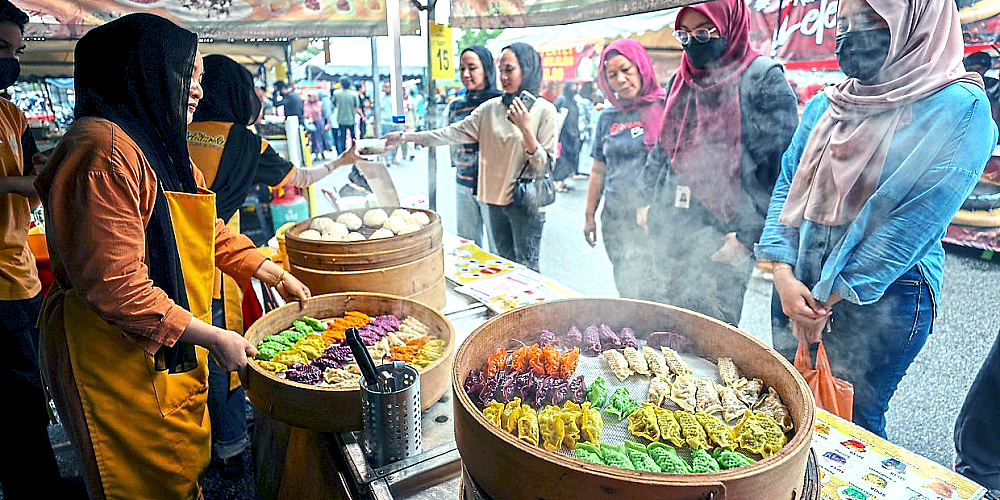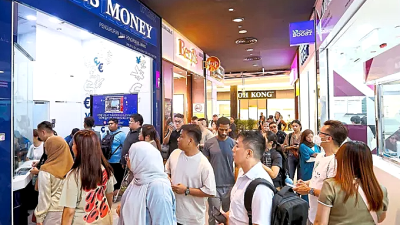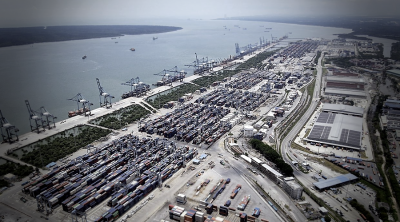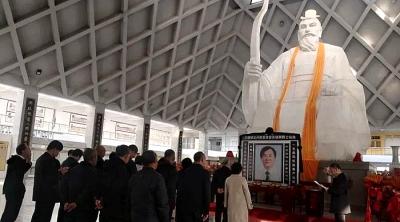
The word “halal” denotes conformity to the Islamic teachings, and halal-certified food is consumable by the Muslims.
For years, the word “halal” has been recognised by the country’s non-Muslim community who have been absolutely respectful of the Muslims incorporating halal into their lifestyles.
Malaysia is a multiracial society, Other than the Islamic faith, the religions practised by other ethnic communities such as Buddhism, Taoism, Hinduism, Catholicism and Christianity have all been recognised by all other groups here, something truly valuable and cherishable in our world today. This also goes well with the “religious freedom” enshrined in the Federal Constitution.
In Malaysia, religious freedom has consistently been upheld by all for decades. Unfortunately, something seems to have gone wrong of late, as the halal scope of inclusion keeps expanding.
From the halal launderette of 2017 to the more recent halal washing machine issue and the sacking of an employee wearing a cross at a Muslim-friendly eatery.
From the perspectives of intercommunity harmony, workplace discrimination and religious freedom, such incidents should not be allowed to propagate.
Of course, the sacking of a cross-wearing employee by the owner of the restaurant could be the personal behaviour of the owner himself, but such action has incurred widespread criticism from the public as it involves the element of discrimination which is itself un-Islamic.
Former human resources minister M Kulasegaran has urged the relevant government departments to take action against the restaurant owner to prevent similar discriminatory actions in future.
Given the fact that racial and religious issues are highly sensitive in this country, it is imperative that the government take swift action on this matter.
Kula was right in saying that he worried that one day even Hindu workers with holy ash on their forehead may face issues with their employers at the workplace, resulting in their unfair termination. Perhaps female Indian employees may also not be allowed to put on their traditional sarees one day.
The Malaysian society does not need the extreme conducts of these religious bigots, as this will not help intercommunity integration.
The attire of employees used to trigger controversies in Europe some years ago. In March 2017, the European Court of Justice ruled in favour of employers banning the wearing of hijab and “any political, philosophical or religious sign” by employees at workplace.
That was the first time the ECJ had ruled on the issue of hijab wearing at workplace. The court also said the ban was in conjunction with company ruling that employees should be neutrally dressed.
The ECJ verdict has since invited the objection of Amnesty International.
Similarly, if the Malaysian government is not doing anything about the sacking of the cross-wearing employee, it will not augur well for a united Malaysian society.
In September 2017, a launderette owner in Muar put up a notice outside his shop: For Muslims Only, insisting that he did so on the grounds of kesucian to ensure that the premises are Muslim-friendly (Mesra Muslim).
Sultan Ibrahim of Johor was very unhappy about this, saying the shop was unwelcome in the state of Johor.
Subsequently, a controversial Islamic preacher Zamihan Mat Zin was probed by the police under Section 4 of the Sedition Act 1948 for making disrespectful remarks about the Johor Sultan without specifically naming anyone.
At the same time, Zamihan was also barred from preaching at mosques and suraus across Selangor.
That was not the end of the “halal launderette” issue. Recently, a TikToker shared a video on the social media platform, saying he found the words “Muslim” and “Non-Muslim” on washing machines and dryers at a launderette, sparking a new round of controversies in the cyberspace.
Some began to question whether blood donation, banknotes, buses, cinemas and hair salons should all be divided along religious lines, too, in future.
True religious clerics will not sweat over such ridiculous things. The Malaysian Constitution has expressly stated that religious freedom must be respected by all.
The late PAS spiritual leader Nik Abdul Aziz Nik Mat once personally requested that a Catholic church hang back the cross it had taken down.
Nik Aziz had to pass by a Catholic church opposite the state government building on his way to work every day. One day, he found that the cross was missing from the church building, and got his aide to find out why.
He asserted, “If this has been instructed by PAS, please put it back.” It was later found that the church took down the cross temporarily for building renovation works.
Nik Aziz’s tolerance and respect for other religions must be emulated by all Malaysians, Muslims and non-Muslims alike.
As a matter of fact, majority of Islamic clerics and Muslims in this country are accommodating and tolerant. Indeed, the Malaysian society does not need the extreme conducts of these religious bigots, as this will not help intercommunity integration.
ADVERTISEMENT
ADVERTISEMENT








































